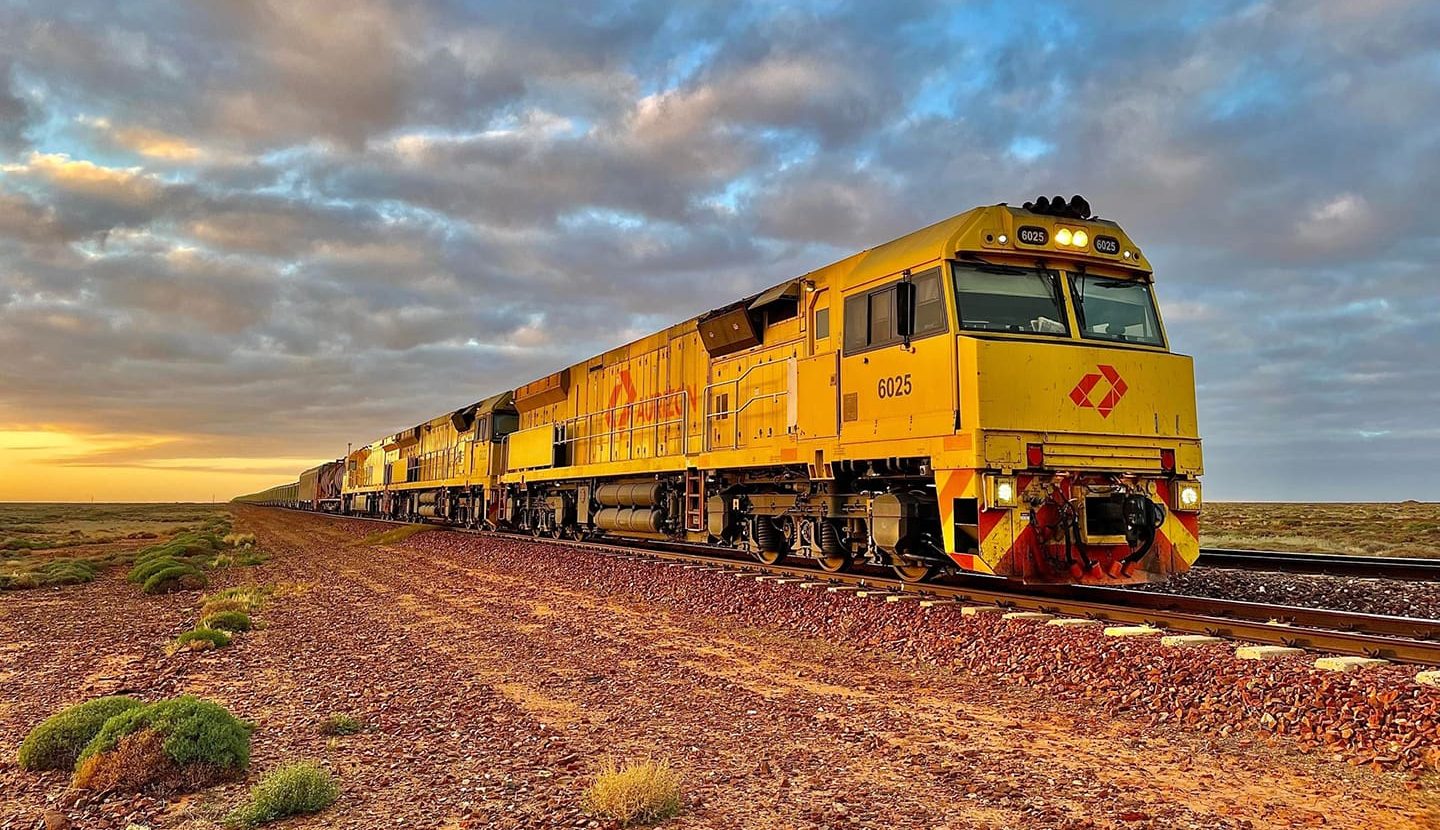
Aurizon has handled reduced grain volumes during FY24. Photo: Aurizon
AUSTRALIA’S largest hauler of grain, Aurizon, has reported an earnings rise of 14 percent to $1.624 billion for the financial year ending June 30, driven by modest growth across all segments.
Aurizon’s Bulk business reported underlying Earnings Before Interest, Tax, Depreciation and Amortisation of $229 million, up 7pc compared to FY23, despite a 2pc reduction in volumes.
The Network segment’s EBITDA grew 14pc to $930M, while the Coal business recorded an EBITDA of $528M, up 16pc on FY23.
Bulk operations include the handling and delivery of commodities including: grain; fertiliser; livestock; iron ore; cement; bauxite; alumina, and base metals.
The company can boast CBH Group, Viterra, CHS Broadbent, Cargill, Thallon Grain, and GrainCorp as key customers.
Unlike the commodity mix from previous strong harvest years, Aurizon’s Bulk FY24 results saw uplift from an increase in mineral and iron ore volumes in Queensland and Western Australia.
Agricultural commodities are now the second-largest revenue driver for Bulk at 18pc of the business, behind iron ore at 23pc.
Aurizon managing director and chief executive officer Andrew Harding said these volumes offset lower grain tonnages in New South Wales, Qld and WA.
He said the lower grain volumes, alongside issues with two mineral producers, had temporarily hit Bulk earnings growth.
“While the short-term performance has been impacted by customer production issues, lower grain volumes and a delay to new customer volumes, our confidence in the bulk opportunity remains unchanged, particularly in central Australia,” Mr Harding said.
The WA business, or Bulk West, saw the largest volume decline of 2 million tonnes to 47Mt for FY24, with a drop in grain volumes of 1.8Mt.
The east-coast segment recorded a volume drop of 400,000t to 7Mt, while Bulk Central, a business incorporating the former One Rail assets in South Australia and the Northern Territory, reported an increase in volume of 700,000t to 13Mt.
Aurizon chief financial officer George Lippiatt said Aurizon changed tack during the year to reduce the impact of “softer volumes in parts of bulk, mainly in Bulk West and Bulk East geographic regions”.
“In response, we have redeployed 12 active locos and 255 wagons, with around half of these moved to coal,” Mr Lippiatt said.
“We have also redeployed train crew where possible to ensure we continue to right-size operating cost for Bulk.”
Mr Harding said the outlook for FY25 was positive, with Bulk earnings “expected to be higher than FY24” driven by volume growth in Bulk Central “more than offsetting an expected volume decline in Bulk West.”
Container plan on track
During the year, Aurizon also completed the stand-up of its containerised freight business.
The business was launched in 2023 off the back of an 11-year contract with Team Global Express.
Mr Harding said Aurizon commenced its full containerised freight schedule in April, with seven weekly services on the east coast.
“In the 12 months of operations, our focus was on standing up the schedule and delivering capacity for our foundation customer.
“We took some spot volume during this period and have recently stepped up to a total of nine additional customers.
“Although noting it was a ramp up year, utilisation was not yet where it needs to be to hit our return targets, with a full-year result of 60pc driven by the softer industry environment.”
Mr Harding said the company was trialling “a land-bridging opportunity through the Port of Darwin” which would connect the port to southern markets.
He said the trial’s transporting of vehicles in modified shipping containers were currently small-scale, but had been “successful to date”.
Aurizon invested in mobile harbour cranes at Port of Darwin during the year to be used by the containerised freight and bulk businesses.
Mr Harding said this infrastructure would enable growth in the export and import of goods “through Australia’s northernmost port and the gateway to Asian economies”.
Aurizon also reported a $135M investment in standard-gauge locomotives and wagons during FY24, also to service bulk and containerised freight customers.
During the Investor Day presentation last year, Aurizon unveiled its plan to haul 25-30pc of the estimated addressable bulk (EBITDA) market of around $1.7B by 2030.
It highlighted the need to grow exposure to new markets, including phosphate and gypsum miners, as well as maintaining a strong focus on grain.
The presentation emphasised the relatively low export volume volatility of wheat, the dominant bulk grain commodity, in state’s such as WA and SA, which supply the majority of Aurizon’s volumes.

HAVE YOUR SAY